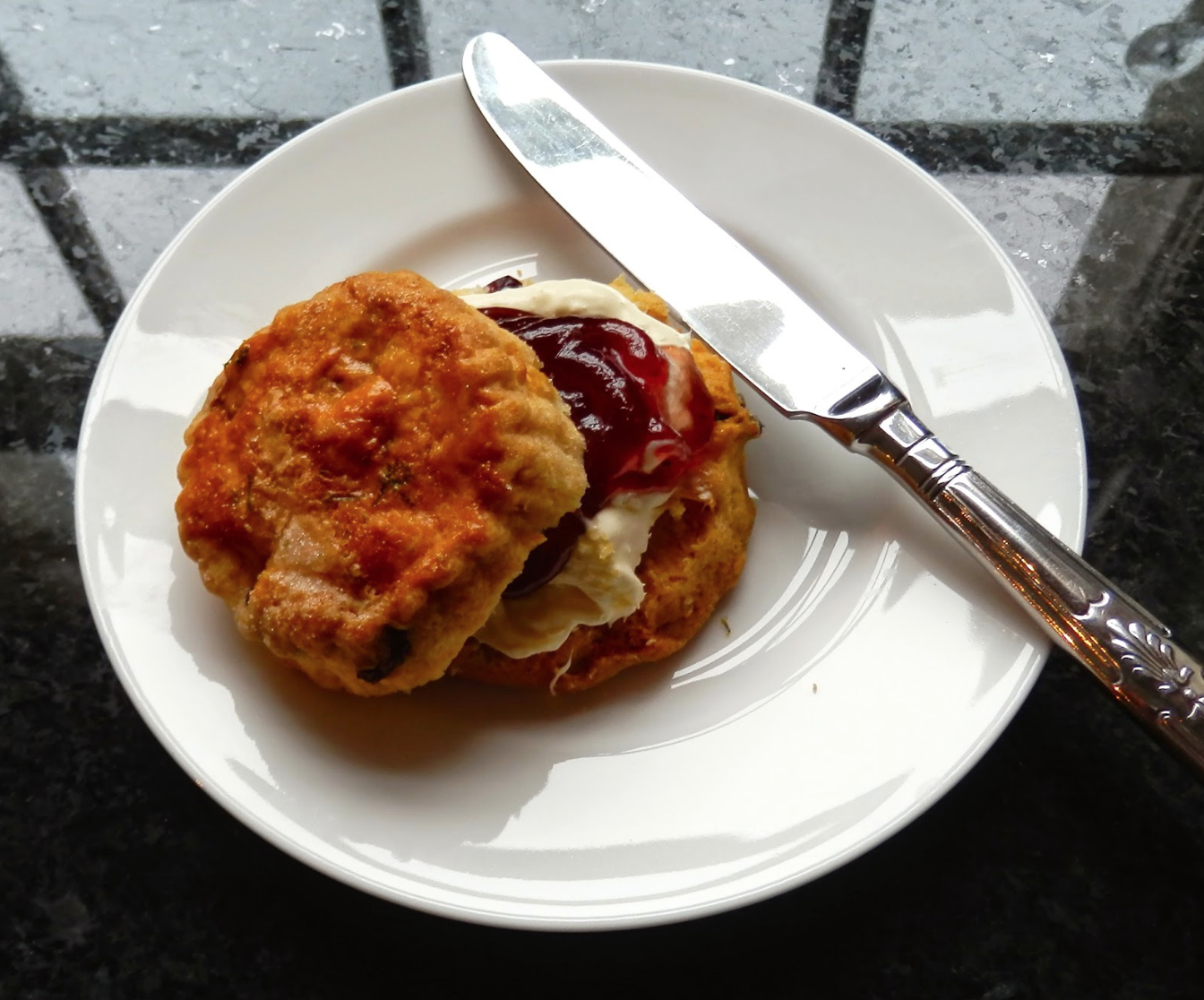 The 9 year old’s on-going quest for the perfect bake has turned to scones. So far we’ve made conventional scones, cheese, raisin, and this variation from a recipe by Ina Garten (aka The Barefoot Contessa). Ina’s version includes cream and is made in the kitchen aid – I’ve included it because the ingredients and technique varied a great deal from the English versions I saw.
The 9 year old’s on-going quest for the perfect bake has turned to scones. So far we’ve made conventional scones, cheese, raisin, and this variation from a recipe by Ina Garten (aka The Barefoot Contessa). Ina’s version includes cream and is made in the kitchen aid – I’ve included it because the ingredients and technique varied a great deal from the English versions I saw.Some recipes included buttermilk, but that’s often because the acidity in the buttermilk acts on the raising agents, causing a better rise in the scone. This is one of the few scone recipes I found however that included double cream – and it does make for a rich scone. The higher fat content also ensures a more consistent scone.
For the scone:
560g plain flour, plus 35g extra
50g caster sugar, plus extra for sprinkling
2 tbsp baking powder
2 tsp salt
5g grated orange zest
340g cold unsalted butter, diced
4 large eggs, lightly beaten
240ml cold double cream
165g dried cranberries
1 egg beaten with 2 tbsp water or milk, for egg wash
50g caster sugar, plus extra for sprinkling
2 tbsp baking powder
2 tsp salt
5g grated orange zest
340g cold unsalted butter, diced
4 large eggs, lightly beaten
240ml cold double cream
165g dried cranberries
1 egg beaten with 2 tbsp water or milk, for egg wash
For the Icing:
75g icing sugar
20ml freshly squeezed orange juice
20ml freshly squeezed orange juice
Method:
- Preheat the oven to 200C/Gas 6. In the bowl of an electric mixer fitted with a paddle attachment, mix 560g of the flour, 50g caster sugar, the baking powder, salt and orange zest. Add the cold butter and mix at the lowest speed until the butter is the size of peas.
- Combine the eggs and double cream and, with the mixer on low speed, slowly pour into the flour and butter mixture. Mix until just blended. The dough will look lumpy! Combine the dried cranberries and 35g of flour, add to the dough, and mix on low speed until blended.
- Dump the dough onto a well-floured surface and knead it into a ball. Flour your hands and a rolling pin and roll the dough 1.5cm thick. You should see small bits of butter in the dough. Keep moving the dough on the floured board so it doesn’t stick.
- Flour a 7.5cm round plain or fluted cutter and cut circles of dough. Place the scones on a baking pan lined with parchment paper. Collect the scraps neatly, roll them out, and cut more circles. At this point you can transfer to a freezer-safe container to cook from frozen later. Please note, cooking times will increase when cooking from frozen and you may need to lower your oven temperature slightly.
- Brush the tops of the scones with egg wash, sprinkle with the remaining caster sugar, and bake for 20 to 25 mins, until the tops are browned and the insides are fully baked. The scones will be firm to the touch.
- Allow the scones to cool for 15 mins and then whisk together the icing sugar and orange juice, and drizzle over the top.
Notes:
- I didn’t cover my scones in the glaze, it seemed a little too sweet for my more puritanical tastes – since I’ve given up sugar, anything covered in glaze seems a little extreme…
- I did however top my scones in a little grated lime zest, which added perfume and a little more acidity to the scone
- Yes, the picture shows it served “Devon” style, rather than “Cornish” – that is with the cream first, and then topped with the jam… Personally I have absolutely no preference!
- For purists, the fluted cutter is used for scones that include fruit, and the smooth cutter for plain scones.
